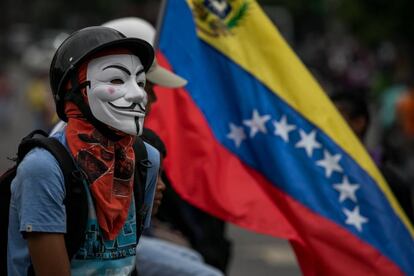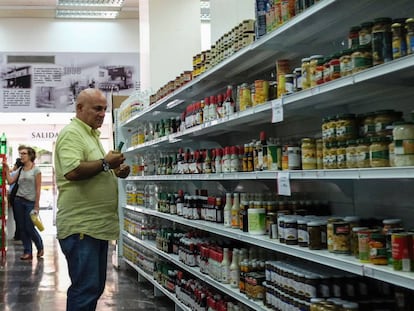United Airlines and General Motors quit strife-torn Venezuela
Companies leave country over government policies considered hostile to foreign investment
In yet another blow for Venezuela and its embattled President Nicolás Maduro, two major US firms have decided in recent days to cease operating in the country. Both General Motors (GM) and United Airlines have announced they will be pulling out of Venezuela, and while the two companies cite different reasons for doing so, their decision to end operations in the South American country is linked to both its ongoing political and economic crisis and to government policies unfavorable to foreign investors.

GM announced on Friday it would be leaving Venezuela after 69 years in the country while United Airlines on Saturday pulled the plug on daily flights to the country.
The drastic and definitive decision by GM comes after Venezuela’s Supreme Court in April embargoed assets at its assembly plant in the country in response to a lawsuit lodged by the car maker in 2000. A total of 2,678 workers will lose their jobs with 79 branches around the country shutting their doors.
GM says it has remained willing to talk with Venezuelan authorities without receiving a positive response. For its part, the Venezuelan government has said on numerous occasions that it does not intend to seize GM assets, with Labor Minister Francisco Torrealba denying any link between its embargoing of the firm’s assets and the legal dispute between the two parties.
In 2006 GM produced 68,147 cars in Venezuela; last year it produced none
Figures from the Venezuelan car-makers association (Cavenez) reveal the dramatic decline in GM production in the country in the last decade. In 2006, the auto giant, then the market leader, produced 68,147 cars. In 2016, however, it did not produce a single vehicle. It is a trend that can be seen across the whole industry: 10 years ago 171,715 cars were made in Venezuela. Last year that figure was 2,849.
The steep decline of the auto industry can be explained in part by the collapse of foreign-currency controls originally put in place in Venezuela in early 2003. The country’s car makers called on the government to provide them with the currency needed to import the parts they needed. But faced with falling oil prices and needing to make urgent debt repayments, the government of Maduro decided to deprive private enterprises of the foreign currency they needed while also putting off the payment of debts to those multinational companies hoping to transfer their profits from the local bolivar currency to US dollars.
In the case of United Airlines, the carrier, like most of its foreign competitors operating in Venezuela, has stopped selling seats in the local currency. Now, however, United has gone a step further, announcing that as of July 1 it will stop its flights from Houston and Caracas. Companies including Alitalia, Lufthansa, and Latam, among others, have already made a similar move while Iberia and Air Europa have reduced the number of their flights to Venezuela.
The International Air Transport Association says the Venezuelan government owes its members $3.78 billion
In an email, United spokesperson Charles Hobart said the service, popular with oil industry executives, was being cut because financial expectations for the route were not being met.
The International Air Transport Association says the Venezuelan government owes its members $3.78 billion with carriers saying Maduro’s administration has failed to reimburse them in foreign currency for tickets sales carried out in bolivars.
English version by George Mills.









































